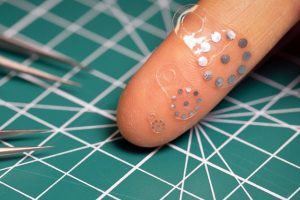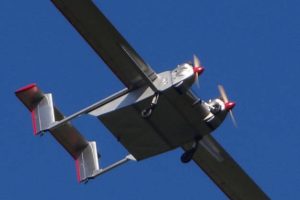The prototype system “will be based on the same silicon MOS platform used throughout the consumer electronics industry today, while the test bed forms part of NQCC’s vision to enable the UK to solve some of the most complex and challenging problems by harnessing the potential of quantum computing”, according to London-based Quantum Motion.
As well as a cryogenic CMOS IC-based prototype, the project includes cryo-electronics and machine learning control to ‘tune’ the quantum devices.
This is not the only quantum computing hardware being assembled at NQCC. Together with the Department for Science, Innovation and Technology, it has announced £30m for prototypes that it aims to have by March 2025.
“There is a growing realisation across the industry that quantum developers need access to the hardware to engineer scalable solutions for a full-stack quantum computer,” said NQCC director Michael Cuthbert. “Once built, these system-level prototypes will help the NQCC and its collaborators to understand the unique characteristics of different hardware approaches, establish appropriate metrics for each qubit architecture, and explore the types of applications that benefit most from each technological approach.”
Results will feed into UK academia, industry and government to develop use-cases for early-stage quantum computers, and to identify gaps that will need to be filled before adoption.
Quantum Motion was founded by Professor John Morton of University College London and Professor Simon Benjamin of the University of Oxford. Now with 50 staff, the company claims to have qubits with typical dimensions below 100nm and expertise in fault-tolerant computer architectures and error mitigation, on top of the machine learning algorithms mentioned above.
Other companies sharing the £30m to produce prototypes are: Aegiq (Sheffield), Cold Quanta UK (Warwick), Orca Computing (London), Oxford Ionics (Oxford), QuEra Computing (Exeter) and Rigetti UK (London).
At the same time as announcing that funding, the Department for Science, Innovation and Technology also announced where its £15m Quantum Catalyst Fund (funded by DSIT and Innovate UK) would be distributed, with the aim of accelerating the adoption of “quantum solutions” by the public sector, it said.
Winners here are: Cambridge Quantinuum (London), MoniRail (West Midlands), Cerca Magnetics (Nottingham), Delta g (Birmingham), Q-Ctrl UK (London) and Phasecraft (London).
| NQCC test-beds | Lead | Location |
|---|---|---|
| Asteroidea – a flexible photonic quantum computing test-bed for machine learning |
ORCA Computing |
London |
| Quartet:Quantum advantage-ready trapped-ion exploration test-bed |
Oxford Ionics | Oxford |
| Sqale: Scalable quantum atomic tattice computing test-bed |
Cold Quanta UK | Warwick |
| Towards an error-corrected neutral-atom quantum computer |
QuEra UK | Boston MA Exeter UK |
| Full-stack superconducting 24qubit quantum computing testbed with tuneable couplers and scalable control system |
Rigetti UK | London |
| Artemis: Advanced research testbed manipulating photonic states |
Aegiq | Sheffield |
| Silicon cloverleaf | Quantum Motion | London |
| Quantum Catalyst Fund | ||
| Quantum simulations: A new era for actinide chemistry |
Cambridge Quantinuum |
London |
| Railway quantum inertial navigation system for condition based monitoring |
MoniRail | West Midlands |
| Quantum-enabled brain imaging: A pathway to clinical utility |
Cerca Magnetics | Nottingham |
| GCC – Gravity cartography catalyst | Delta g | Birmingham |
| Quantum optimised train schedules | Q-CTRL UK | London |
| Quantum computing solutions for optimisation problems in Energy Grids |
Phasecraft | London |
 Electronics Weekly Electronics Design & Components Tech News
Electronics Weekly Electronics Design & Components Tech News



